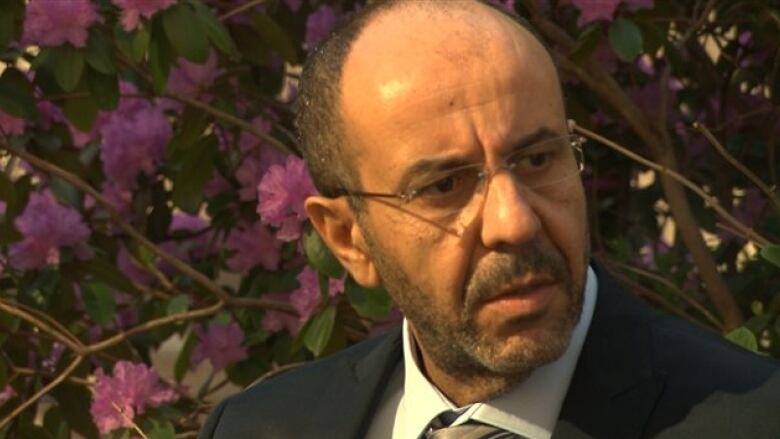Belhassen Trabelsi, ex-Tunisian dictator's brother-in-law, denied asylum
Brother-in-law of Zine el Abidine Ben Ali has been living in Montreal since 2011

Belhassen Trabelsi, the brother-in-law of former Tunisian dictator Zine el Abidine Ben Ali, has beendenied political asylum in Canada.
The Immigration and Refugee Board of Canada rejected hisrequest for refugee status on Mondaybecause of criminal charges he faces in Tunisia.
"The tribunal finds that there are serious reasons for considering that the applicant, Belhassen Trabelsi, has committed serious political crimes, specificallydefrauding the government, fraud andmoney laundering," the ruling says.
The decision comes after 21 days of hearings, which began 20 months ago. It applies to Trabelsi only. His wife and children are eligible to apply for refugee status in Canada.
Had residency status in 1990s
Trabelsican appeal by requesting a judicial review, which means a new hearing would take place before another commissioner. Such a request could take up to two years.
Trabelsi has been in Montreal since January 2011, when he fled Tunisia as the regime of his brother-in-law, Zine El Abidine Ben Ali, was collapsing. Heis accused of looting Tunisia's public treasury and faces a variety of charges in his home country.
Trabelsi had immigrated to Canada and obtained permanent resident status in the mid-1990s but later returned to Tunisia. Shortly after arriving in Canadain January 2011, that status was revoked.
Trabelsiattempted to have hisresidencyreinstated, but his request was denied.To keep one's permanent residence status, a person must remain in Canada for at least two years out of every five. Trabelsi's lawyers admitted he had failed to meet that requirement.
At his residency hearing in 2012, Trabelsi had argued through lawyers that he should be allowed to stayin Canada on humanitarian grounds and would fearfor his life if he returned to Tunisia.
- Tunisia's Trabelsi loses bid for Canadian residency
- Tunisia's Trabelsi family
- Tunisians in Montreal protest Ben Ali family
- Tunisia issues arrest warrant for Ben Ali
That argument was unsuccessful,and he subsequently applied for asylum as a political refugee.
At hisrecent asylum hearing, an expert testified at length about how Trabelsi conducted businessin Tunisia, saying he received a considerable number of bribes.
"The [immigration] minister is of the opinion that there are serious reasons for considering that the applicant has committed the misappropriation of assets, extortion and offences of over $5,000 ... punishable by a maximum of 14 years, and extortion ... punishable by a term of imprisonment for life," the decision reads.












_(720p).jpg)


 OFFICIAL HD MUSIC VIDEO.jpg)
.jpg)



























































































